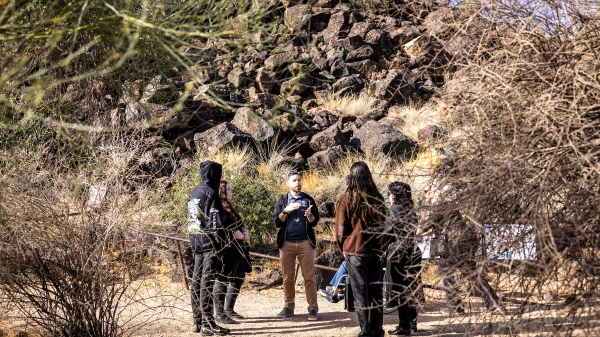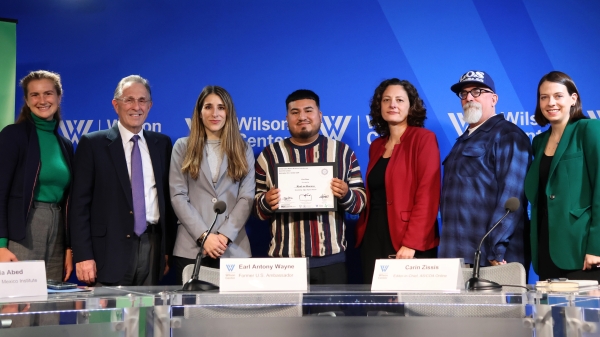Honoring innovative practices, impact in the field of American Indian studies

From the Skin” is a collection over three years in the making centering stories, theories and practices from the field.
American Indian Studies at Arizona State University will host a panel event to celebrate the release of “From the Skin,” a collection over three years in the making centering stories, theories and practices from the field.
The event will take place in Hayden Library on Wednesday, Nov. 20, at noon. Attendees can attend in person or virtually — the first 30 attending the event will receive a free copy of the book.
Edited by Jerome Jeffery Clark, an assistant professor in ASU's American Indian Studies program, and Elise Boxer, an associate professor at the University of South Dakota, the book highlights the work of contributors from across the country and how they’re approaching community-based work and research to help scholars think about American Indian studies differently.
The Labriola National American Indian Data Center’s program coordinator, Eric Hardy, and director and assistant librarian, Alex Soto, also contributed to the book.
“We started having this conversation about what our place in American Indian studies is and what it is that we, as graduates of these programs, bring to the American Indian Studies Association and the field more broadly,” Clark said. “In that conversation, we felt that our community-based scholarship and activism wasn't as recognized as we thought it could be.
“So we started talking about how our efforts in Indigenous communities and organizations had a place and importance because we were practicing the theories and methods of American Indian studies and some of the community projects we saw others doing looked innovative, too. A few of us said, ‘Hey, we should turn this into a book project.’”
Clark and Boxer collaborated with post-graduate students working in health programs for organizations such as the Inter Tribal Council of Arizona or completing archival work in architectural recovery.
The connections that scholars and students are making with Native communities are the origin of the book's title, a display of how these connections have put them in touch with their community’s knowledge and needs.
“This event gives us a chance to celebrate the authors and the interdisciplinary work that we do in AIS (American Indian Studies) and show the impact we have on students and community. The scholarship and service of our AIS faculty at ASU demonstrate the importance of working across disciplines and maintaining connection to communities we serve,” said Michelle L. Hale, a teaching professor for American Indian Studies and president of American Indian Studies Association.
Clark hopes that the book will eventually be used for various programs and teach students what it means to exist at the intersection of community and academia. He is already in the process of following up with a second book, “From the Land,” which is set to focus on land-based practices.
“We would like to get people who are working in the sciences, archaeology, climate sciences, the humanities or people who are working in food sovereignty to discuss what it means to be connected to and think from place in their work, whatever form this takes in their specific locales,” Clark said.
The event leads up to the 26th annual American Indian Studies Association conference, which will be hosted on ASU’s Tempe campus Feb. 5–7, 2025. The conference is open to everyone and offers opportunities for conversation and networking.
More Arts, humanities and education

Petroglyph preserve celebrates 30th anniversary with ancient, modern tales
The Deer Valley Petroglyph Preserve provides a beautiful walk through a pristine desert where chuckwalla lizards are as plentiful as the cacti that comes in many shapes and sizes.It’s also a step…

Kaleidoscope short film contest inspires powerful binational filmmaking in its second year
“We come to this country not to steal anybody’s jobs but to take advantage of the opportunities that the rest ignore. We’ve been taking care of the American soil for many years. But our hands will…

ASU's Neal Lester reflects on life, death of poet Nikki Giovanni
When Neal Lester heard on Monday that poet and activist Nikki Giovanni had died, the news hit hard.Lester, the founding director of Arizona State University’s Project Humanities and a Foundation…